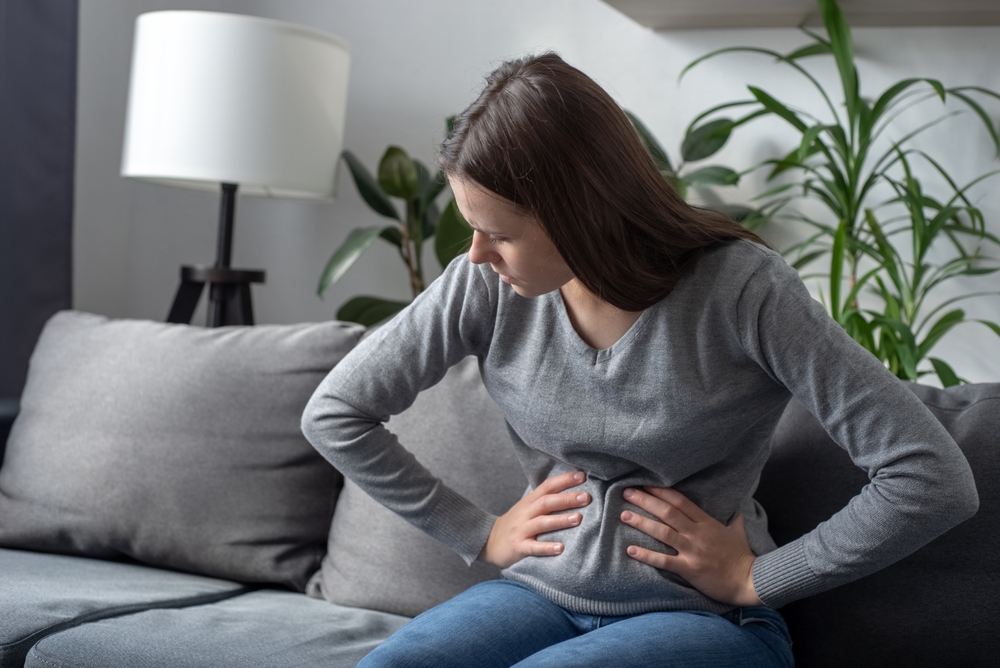Hey there! If you are reading this, chances are that you are one of the millions of people who experience heavy menstrual bleeding. Menstruation is a very natural process that happens to anyone with a uterus. But when bleeding becomes too heavy, it interferes with your daily life activities and can be a real pain.
So, if you are struggling to keep up with your daily activities, or feeling miserable during that time of the month, you are not alone. Heavy periods or menorrhagia is a very common issue that affects many women.
Let’s explore what causes heavy bleeding, what signs and symptoms to look for, and some tips to manage it well.
Table of Contents
What Causes Heavy Periods?
Some of the common causes of heavy periods include:
- Growth in the Uterus – Growths in the inner lining of the uterus known as polys can be a culprit. Fibroids are non-cancerous tumors that grow within the uterus. Both of these can cause heavy menstrual bleeding or make them last longer than they usually do.
- Hormone Problems – Every month, a new lining builds up inside the uterus that is then shed during the periods. If there is not much balance in your hormones, your body might make the lining too thick. This can then result in heavy bleeding when shed during periods.
Also, if you don’t ovulate, this can throw off the hormone balance in the body, leading to a thicker lining and a heavier period.
- Problems Related to Pregnancy – in some cases after the sperm and egg meet, the growling ball of cells implants itself outside the uterus instead of inside. This is known as ectopic pregnancy. This is not a viable pregnancy in many cases and causes issues like heavy menstrual bleeding.
A miscarriage, when a baby dies in the womb can also be the cause of heavy bleeding.
- Bleeding Disorders – Although bleeding disorders are not very common if they run in the family they can make it hard for the blood to stop flowing out from a cut. These can also cause heavy bleeding during periods in women.
Read on exercises during periods, to help yourself more.
Signs and Symptoms of Heavy Bleeding During Periods
Dr. Rabbia Ashraf a renowned gynecologist in Pakistan says that some women have heavy periods every single time. Some develop these after years or decades of having typical periods. It is best to visit a doctor if it’s a new problem for you.
If you are someone suffering from heavy menstrual bleeding then you may also:
- Have abdominal pain
- Lose more than 80 milliliters of blood during your period instead of 35 to 40 milliliters
- Pass blood clots that are the size of quarters
- Bleed after menopause
- Skip things like doing because of painful cramps
- Have periods that last longer than 7 days
- Anemia symptoms like shortness of breath, feeling exhausted or tired
With anemia, you might also see signs of Pica. Pica symptoms include pale skin, hair loss, and the urge to eat non-food items like dirt, paper, or cement.
Women that face menorrhagia or heavy flow of periods may have to:
- Change pads or tampons at least once an hour for a day
- Wear two pads at a time to manage the heavy menstrual bleeding
- Change pads in the middle of the night
Read, why is menstruation important for females to explore more.
How is Heavy Bleeding During Periods Treated?
The type of treatment that you take depends on the cause of the bleeding and how serious the condition is. The best gynecologist near you takes some factors into consideration like your age, general health, and medical history.
Some treatments are ongoing and others are done one time. Here are some types of treatments that you can take.
Drug Therapy
Birth Control Pills – To help the periods make more regular and reduce the bleeding, birth control pills are used.
Iron Supplements – To get more iron and to carry more oxygen if you show signs of anemia during heavy menstrual bleeding, iron supplements are advised.
Ibuprofen – To help reduce pain, amount of bleeding, and menstrual cramps, ibuprofen is given.
Intrauterine Contraception – This help makes the periods more regular and reduces heaving bleeding by inserting dug-releasing devices in the uterus.
Read on Irregular Periods to explore more.
Surgical Treatments
Some of the surgical one-time treatments include
Operative Hysteroscopy – A surgical procedure that uses special tools to view the inside of the uterus. It works for removing fibroids or polyps, correcting abnormalities of the uterus, and removing the lining of the uterus to manage the heavy menstrual flow.
Dilation and Curettage – A procedure in which the top layer of the uterus lining is removed in order to reduce heavy menstrual bleeding. This procedure can be repeated over time.
Hysterectomy – A major procedure that requires hospitalization involving surgically removing the entire uterus. After having this procedure, a woman can no longer have periods and can never get pregnant.
Endometrial Ablation or Resection – In this technique, all or some part of the uterus lining is removed. This is done to control menstrual bleeding while some patients totally stop having menstrual periods. Experts at Doctors Hospital say, although the uterus is not removed in this procedure it can still prevent women from making babies.
When to Contact Healthwire!
Menorrhagia or heavy menstrual bleeding is very common in women But, many women do not know that they can get help for it. Others don’t ask for help, as there is so much embarrassment still attached to this topic. However, if you think that your blood flow during periods is out of control, make sure to book an appointment with the top lady doctors near you using the Healthwire App.
